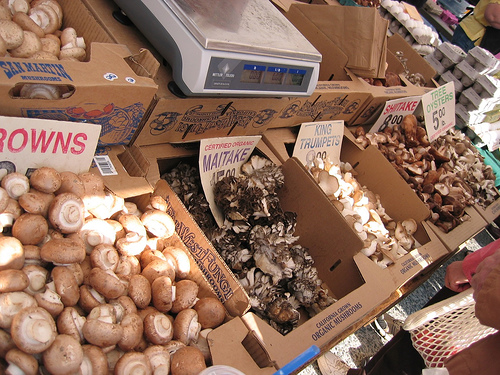Today I attended a two-hour class associated with the San Francisco Fancy Food Show called “Tradition + Technique + Terroir = Taste of European Traditional Foods.” The class covered four hams, five cheeses, three olives, and two beers. The general idea was to explain how great these foods are so that the students — mostly food retailers — can successfully sell them. One of the cheeses was a cheddar. There is a town in England called Cheddar, I learned.
I asked a question: “When an American cheese maker makes a cheese and calls it a cheddar, what are they doing?”
“It doesn’t taste the same!” said the American retailer who was in charge.
This irritated me. “When an American cheese maker makes a cheese and calls it a cheddar, it isn’t a joke,” I said. “There’s a reason for it.” Then the process called cheddaring was explained.
The people who make English cheddar cheese (the original), the people who make Greek feta cheese (the original feta), and many other food producers would like no one else to be able to use the names cheddar, feta, etc. Inside the European Union, that is often the case: Only Greek feta can be called feta, for example. A new EU program labels foods with “Protected designation of origin” or “Traditional specialty guaranteed” as a way to help consumers know that they are getting the traditional original product.
This is a half-measure. I am in favor of anything that helps preserve the diversity of what we eat, so I am in favor of this program. I am in favor of telling the stories behind English cheddar, Greek feta, and so on. But this sort of thing is a half-measure because the best way to ensure the survival of a food is to ensure it tastes better than similar foods. A labeling program does not do that. Not in the slightest. Perhaps future efforts should be focussed on how to make customers more discriminating. Here is the truth: Traditional products often taste very good. Here is the half-truth: They taste very good because they are traditional. Here is the (implicit) lie: Non-traditional products taste worse because they are non-traditional.


